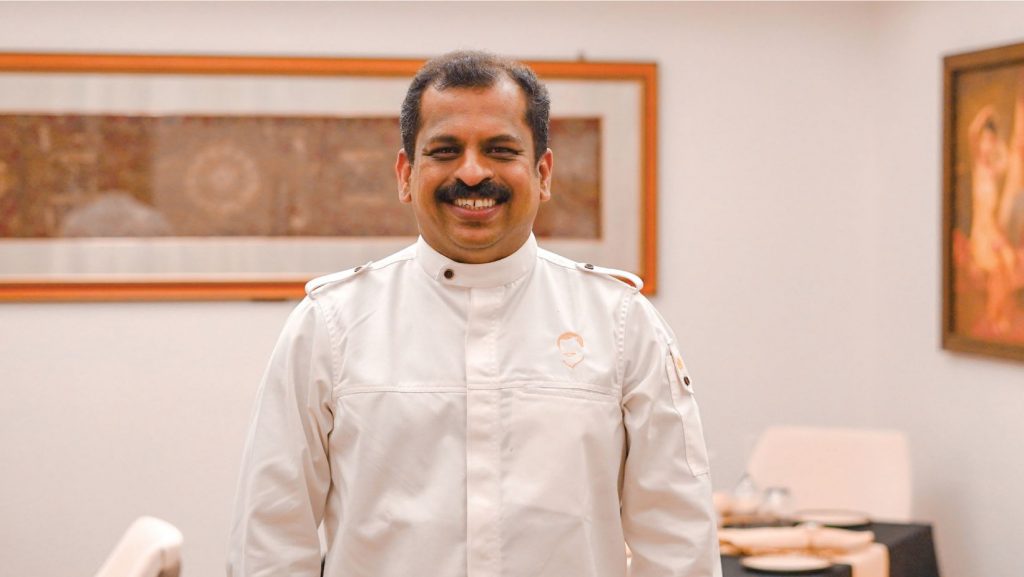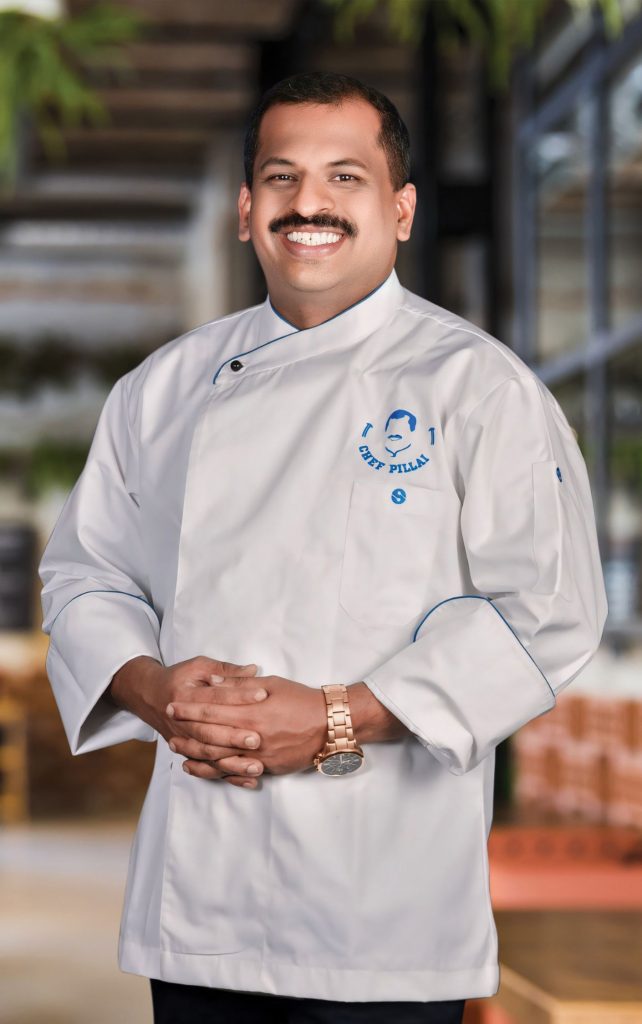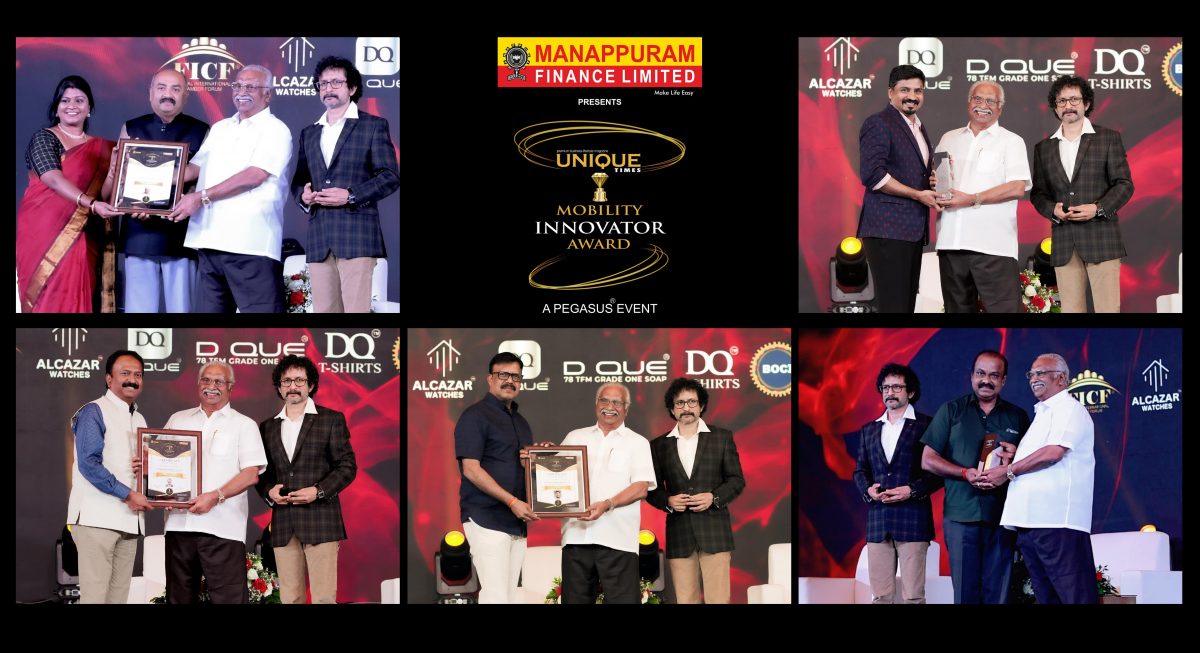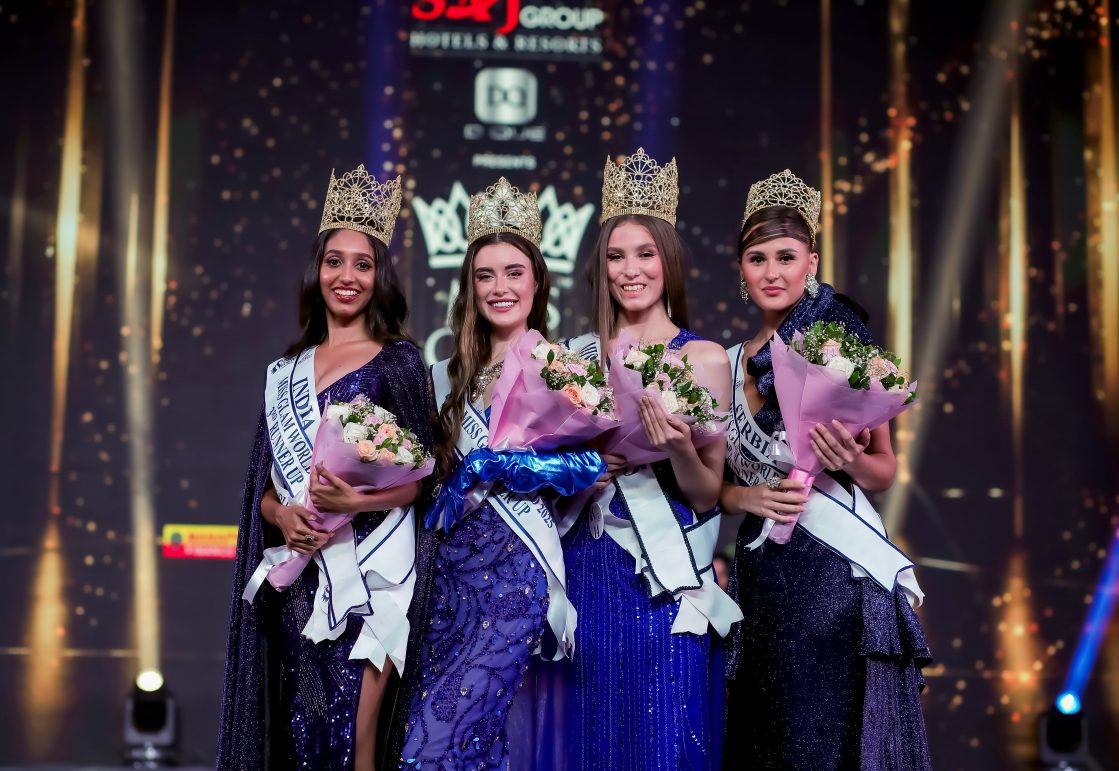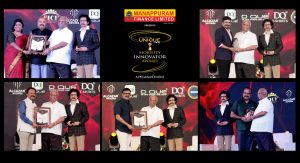
In the current landscape of social media dominance, brands exert significant influence over our daily lives. Yet, the captivating narratives that underpin the genesis of certain iconic brands often remain obscured. Enter Chef Pillai, whose journey to acclaim stands as a testament to this. Like the alchemists of antiquity, Chef Suresh Pillai has cultivated a touch of gold, melding his decades-long pursuit of excellence with unwavering passion and skill. Originating from the tranquil shores of Ashtamudi Lake in Kollam, his odyssey has traversed the culinary realms of numerous continents, cementing his status as a gastronomic maestro dedicated to harmonizing innovation and tradition. Embark with us as we unravel the enigmatic saga behind Chef Pillai’s culinary mastery, the inception of his brand, and the emergence of a visionary entrepreneur.
Tell us about that remarkable journey of transformation that began on the shores of the Ashtamudi Lake?
My transformation from Suresh to Chef Pillai commenced in a serene village nestled in the backwaters of Kollam district. Born into an ordinary family, my foray into the culinary realm unfolded serendipitously after completing my Class X education. Circumstances at the time deterred me from pursuing formal culinary training, yet as I delved deeper into the kitchen, I unearthed a natural flair for cooking and became captivated by its boundless possibilities.
Fortune smiled upon me when I journeyed to the UK for employment in 2005, armed with 15 years of experience and a steadfast work ethic. Upon my arrival in Britain, I initially went by my given name, Suresh Pillai. However, owing to the importance of surnames for work permits, I swiftly became known as Mr. Pillai. As the lone representative of Kerala cuisine amidst a staff predominantly hailing from North India at Veeraswamy, England’s inaugural Indian restaurant established in 1927, I earned the title of “Chef Pillai.”
Upon my entry into the realm of social media, challenges arose in creating an account under the name “Suresh Pillai,” prompting my adoption of the persona Chef Pillai. Though I had never envisioned a return to India while enjoying life’s comforts abroad, my renown burgeoned through social media and appearances on BBC’s Masterchef, ultimately leading to recognition as Chef Pillai in my homeland.
In 2017, an opportunity beckoned me back to Kerala to work at The Raviz Hotel in Kollam, catalyzing my return. Initially intending to resume my tenure in England post-contract, considering our citizenship status and our children’s happiness, fate intervened, compelling the establishment of my own venture in Bangalore post-COVID. Within six months, another restaurant sprouted in Kochi’s Le Meridien under the Marriott Group’s ownership, marking yet another milestone. Within a year, four additional enterprises were launched, including one in Qatar.
The transition from chef to entrepreneur posed formidable challenges, necessitating adeptness in myriad domains beyond culinary expertise, including marketing and finance. Despite the obstacles, my vision of propagating Kerala’s flavors globally propelled the expansion of my restaurant empire. Bolstered by investors and a dedicated team, I am poised to inaugurate 60 restaurants by year’s end, following three years of development, each offering a diverse range of tastes and price points.
The journey from Suresh to Chef Pillai epitomizes not merely personal evolution but also a dedication to disseminating the essence of Kerala cuisine on a worldwide scale. And the odyssey persists.
What circumstance led to your journey to Britain?
The desire to venture to Europe, America, or Australia had long been a dream of mine, despite numerous job offers in the Middle East. I held out for the chance to fulfill my European aspirations. The opportunity finally arose in 2005, when I received a call while working at Kumarakom. I was summoned for an interview in Mumbai for a job in the UK. After five days of interviews, I was selected and I swiftly found myself in London within a week. Securing a position at Veeraswamy proved to be a significant milestone. Amidst a vast array of chefs, I was chosen as the sole representative of Kerala cuisine—a role that opened my eyes to new experiences and learnings on an international scale. Reflecting on my career, those 15 years spent in the UK stand out as some of the most valuable.
What aspect of your culinary journey has brought you the greatest joy and fulfillment?
The journey of establishing eleven new brands, launching sixty successful restaurants, and fostering a sense of community among over a thousand individuals over three years has undoubtedly been the most rewarding aspect of my career. Throughout my professional life, I have received numerous awards and recognitions for my culinary expertise. I have been fortunate to receive letters of commendation congratulating me on various distinguished personalities. Despite that, what has brought me the most joy and satisfaction over the past thirty years is not just the work itself, but also the opportunity it has provided for me to contribute significantly to the livelihoods of many families. For me, that has been the most fulfilling aspect of my journey, bringing me the utmost happiness and contentment.
What are the secret ingredients to becoming an exceptional chef?
To become an excellent chef, one must have a passion for the culinary art. The willingness to continually learn new things and the humility to acknowledge that there is always more to learn are essential. It’s not enough to just study; practical experience is crucial for gaining a deeper understanding. Trying to correct mistakes and improve based on our knowledge gaps is necessary. If we accept and acknowledge our inadequacies, we can strive to achieve excellence. Otherwise, if we assume that our learning is complete, success will always elude us. Success comes from adapting and incorporating lessons from our experiences, both good and bad, into our practices.
Could you define the learning and training phase that moulded Chef Pillai?
In my journey, I’ve learned that while formal education spanning several years can be advantageous, proficiency can also be attained through sheer dedication and hard work. Despite lacking a background in Hotel Management, I’ve risen to senior roles in renowned hotels and restaurants, albeit facing numerous obstacles along the way. This isn’t to diminish the value of education; rather, it underscores the significance of how one applies their knowledge and abilities. I’ve encountered individuals who, despite holding degrees and undergoing extensive training, struggled to excel. What truly counts is the mindset we cultivate in bridging the gap between learning and practical application, remaining receptive to the lessons that present themselves. Whether it’s skills honed through humble beginnings or insights gleaned from observing others, embracing continuous learning and adaptability is crucial, especially in a constantly evolving industry.
In your global palate-hopping journey, what is your favourite dish?
During my three decades as a chef, I’ve had the privilege of sampling a vast array of dishes from around the world, ranging from the most refined to the simplest fare. Each culinary creation originates from the culture of the country, shaped by its landscape, climate, and the customs of its people, evolving over the years. If one can appreciate the history behind it and savour it with understanding, everything will taste not only delicious but also fascinating. Personally, I hold a deep appreciation for the diverse flavours of Kerala cuisine, but I also have a penchant for Japanese food due to its health benefits and nuanced flavours.
Are you planning any specific initiatives to support economically and educationally backward individuals aspiring to enter the culinary sector?
Certainly, during this period when Malayalis are globally everywhere, there has been a surge in the popularity of Kerala cuisine among admirers worldwide. This presents a significant opportunity for Malayalis, whose upbringing and familiarity with Kerala’s culinary traditions uniquely position them for success in the field. Recognising this potential, I aim to establish a skill centre or academy that offers practical, hands-on training alongside theoretical study, with the goal of equipping individuals of all ages with the necessary skills to thrive in the industry. This initiative seeks to provide accessible education and employment opportunities, transcending traditional four-year courses and catering to the diverse needs of aspiring chefs. With the impending launch of numerous restaurants and my vision to establish a hundred establishments, these initiatives aim to empower individuals to pursue rewarding careers in the culinary arts, regardless of their background, age or circumstances.
What does ‘skill training’ entail?
Allow me to illustrate with an example. ‘Appam’, a beloved delicacy among Malayalis, is a dish familiar to many. Crafting a delicious and well-made appam involves a meticulous process of grinding rice flour, making a batter out of it, fermenting it for several hours, and skillfully cooking it to perfection. While many may know how to prepare appam, the true skill lies in maintaining consistency and quality with every batch. A skilled chef can adeptly manage the fermentation process, ensuring that each appam maintains the desired level of sourness even when the quantity of the batter comes down. This level of precision, coupled with the ability to cook without over or undercooking, requires not just practice, but honed skill. By mastering this skill, one can earn a respectable income, potentially around Rs 35,000 per month.
How does cooking time differ across countries? Could you share your experiences working with renowned chefs worldwide?
Upon my arrival in the UK, I had to unlearn certain culinary habits, notably the concept of precise cooking times. While in Kerala, extending the cooking time for dishes like prawn curry might not pose an issue, in international kitchens, precision is paramount. For instance, even a slight deviation in the timing or spiciness of a dish can greatly impact its quality. Unlike in Kerala, where taste is paramount, international kitchens prioritize consistency and adherence to predetermined standards. My experiences working alongside top chefs worldwide have underscored the importance of precision and consistency in achieving culinary excellence.
All of Chef Pillai’s restaurants uphold international standards. How can ordinary folks enjoy Chef Pillai’s flavours?
Indeed, many have posed this question, and my aspiration has always been to make my culinary creations accessible to everyone. One strategy has been to establish a premium brand, Chef Pillai, which has facilitated partnerships with esteemed establishments like Marriott. While the premium brand has opened doors to new opportunities, my ultimate goal remains to offer high-quality cuisine at affordable prices. In forthcoming projects, I aim to introduce dining options that cater to a budget-friendly range, with the ultimate vision of creating restaurants where meals are priced at Rs. 100. This endeavour is currently in progress, with a focus on maintaining the standards set by existing ventures.
Can we anticipate the establishment of a Chef Pillai Institute in the future?
Certainly. We’re actively working to bring this vision to fruition as soon as possible. The establishment of a dedicated culinary arts academy aims to equip aspiring chefs with the essential training and skills needed to thrive in the industry. My aim is to safeguard traditional recipes and culinary heritage while passing on valuable knowledge to upcoming generations. The inception of a Chef Pillai Institute marks a concrete stride towards realizing this objective, ensuring the longevity of our culinary legacy for generations to come.
Pic Courtesy: Pegasus Photography/ images are subject to copyright



